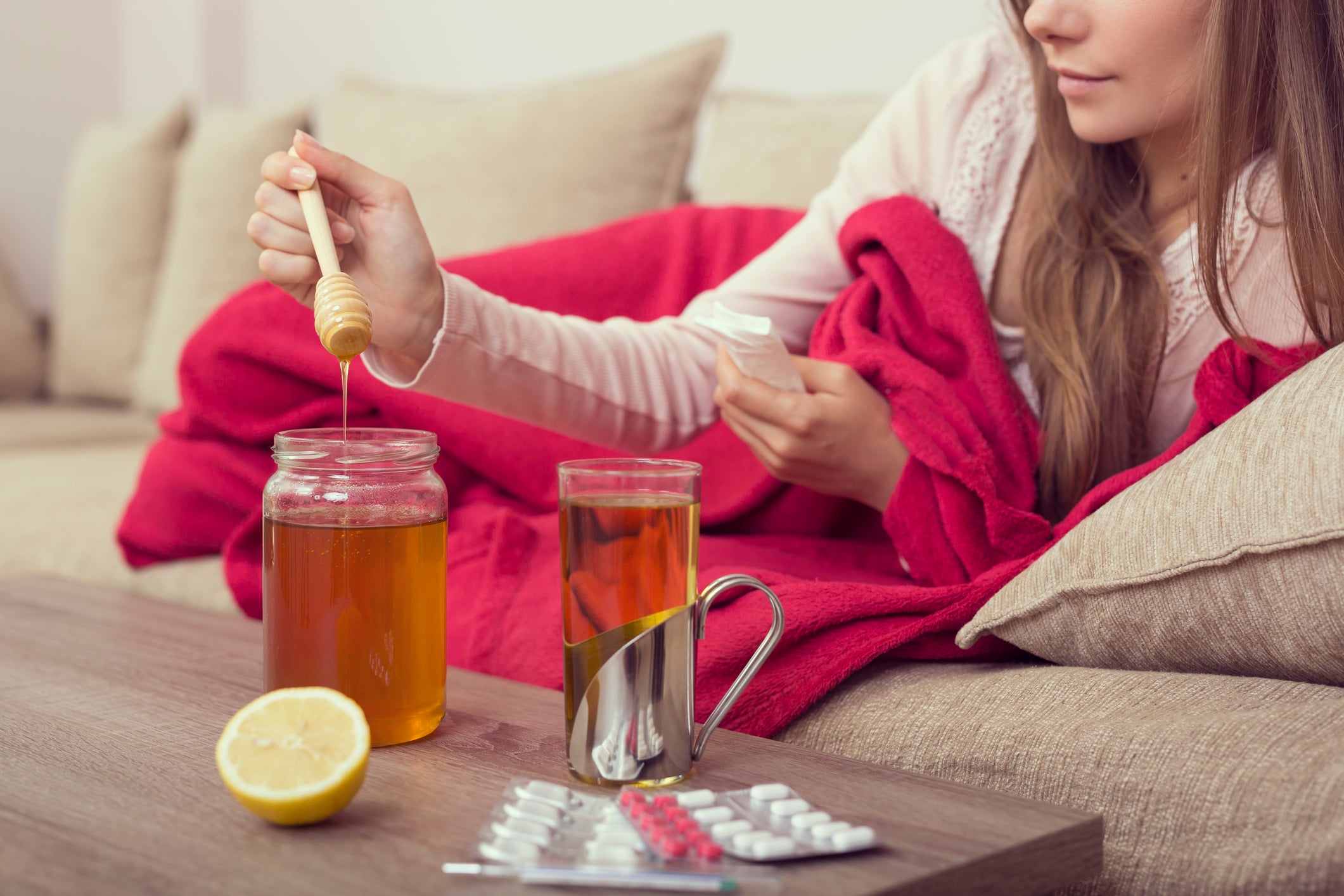Use honey to treat a cough instead of antibiotics, health experts say
Treating a cough with honey or over-the-counter medicine may be the best course of action

Using honey and over-the-counter medicines to treat a cough is better than opting for antibiotics, officials have stated in new health guidelines released today.
When you feel yourself coming down with a cough, you may assume that the best course of action would be to pick up a prescription for an antibiotic.
However, new health guidelines state that doing so may not be as effective as you think.
In new draft guidance published by the National Institute for Health and Care Excellence (NICE) and Public Health England (PHE), experts stress the fact that coughs can be easily treated in just a few weeks without the need for antibiotics prescribed by a GP.
“If someone has a runny nose, sore throat and cough we would expect the cough to settle over two to three weeks and antibiotics are not needed,” says Dr Tessa Lewis, GP and chair of the NICE antimicrobial prescribing guideline group.
“People can check their symptoms on NHS choices or NHS Direct Wales or ask their pharmacist for advice.”
Dr Lewis states that if cough symptoms continue to worsen and the person suffering from the cough begins to feel out of breath or extremely unwell, then it would be sensible to contact their GP for advice.
Furthermore, if an individual has developed an acute cough or has a pre-existing condition such as lung disease or cystic fibrosis, then it would be wise to speak to a doctor sooner rather than later.
Certain honeys and medicines that are available to purchase without a prescription can help relieve a cough due to the presence of several specific remedial ingredients.
According to the NICE draft guidance, honey and cough medicines containing pelargonium, guaifenesin and dextromethorphan have been proven to help cough symptoms settle.
Dr Susan Hopkins, healthcare-associated infection and antimicrobial resistance deputy director at PHE, warned against excessive use of antibiotics, as this can lead to health issues in future.
“Antibiotic resistance is a huge problem and we need to take action now to reduce antibiotic use,” she says.
“Taking antibiotics when you don’t need them puts you and your family at risk of developing infections which in turn cannot be easily treated.”
Dr Hopkins is also urging GPs to refrain from prescribing antibiotics when they may not be needed.
Last year, Professor Dame Sally Davies, chief medical officer for England, issued a call to global leaders asking them to address the important topic of antibiotic resistance, warning that it could lead to “the end of modern medicine.”
“We really are facing, if we don’t take action now, a dreadful post-antibiotic apocalypse,” she told Press Association.
Dr Oliver Bevington, a senior registrar in paediatrics at Southampton Children’s Hospital, has recommended that parents treat their children’s coughs and colds with honey and lemon as opposed to over-the-counter cough medicines, as they may unintentionally give their children an “overdose”.
Subscribe to Independent Premium to bookmark this article
Want to bookmark your favourite articles and stories to read or reference later? Start your Independent Premium subscription today.

Join our commenting forum
Join thought-provoking conversations, follow other Independent readers and see their replies